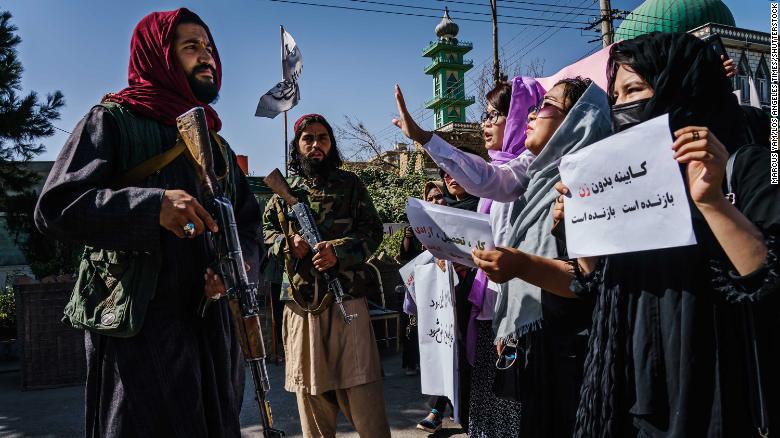Re: Call for Urgent Debate on the women’s rights crisis in Afghanistan at the 50th session of the UN Human Rights Council Excellencies,
We, the undersigned civil society organisations, urge you to call for and support an urgent debate at the 50th session of the UN Human Rights Council regarding the women’s rights crisis in Afghanistan. We further urge you to support a resolution responding to this crisis.
Since August 2021, when the Taliban took control of the country, there has been an enormous deterioration in the recognition and protection of the rights of women and girls in Afghanistan, including with respect to the rights to non-discrimination, education, work, public participation, health, and sexual and reproductive health. The Taliban has also imposed sweeping restrictions on the rights to freedom of expression, association, assembly and movement for women and girls. Afghanistan is now the only country in the world to expressly prohibit girls’ education.
In the last few weeks, the situation has worsened dramatically, with a Taliban directive that women and girls must fully cover themselves in public, including their faces, and leave home only in cases of necessity. International investigations, witness testimony and video evidence indicate that women human rights defenders and others protesting against the restrictions and violations have been subject to home invasions, threats, abductions, enforced disappearances, and assaults with electric devices and chemical sprays.
On 17 May 2022, the Taliban dissolved the Afghanistan Independent Human Rights Commission, cutting off a crucial source of support for Afghans facing violations of their human rights, including women and girls experiencing gender-based violence.
On 26 May 2022, the Special Rapporteur on the human rights situation in Afghanistan concluded his country mission by describing recent measures as ‘fitting a pattern of absolute gender segregation…aimed at making women invisible in society’.
This is the most serious women’s rights crisis in the world today, and the most serious women’s rights crisis since the Taliban took over Afghanistan the last time in 1996.
Consistent with the mandate conferred under General Assembly resolution 60/251 that the Human Rights Council address situations of gross and systematic human rights violations, it is imperative that the Council consider and take action on the women’s rights crisis in Afghanistan in a manner reflecting the gravity and urgency of the situation. At the Council’s forthcoming 50th session the High Commissioner will provide an oral update on the human rights situation in Afghanistan, followed by an interactive dialogue. In our view, this interactive dialogue, which will consider the situation in the country in general, should be complemented by an urgent debate providing a dedicated focus on women’s and girls’ rights, gender equality, and the situation for women human rights defenders in the country.
The purposes of an urgent debate could include:
- To unequivocally condemn the huge regression in the recognition, protection and realisation of the rights of women and girls in Afghanistan;
- To express solidarity and support for women and girls in and from Afghanistan, including women human rights defenders who continue to advocate for equality and non-discrimination despite the threats and risks;
- To provide a platform and opportunity for women human rights defenders from Afghanistan, together with other independent civil society actors, to share their experiences, expertise, recommendations and demands;
- To provide a platform and opportunity for the Special Rapporteur on the situation of human rights in Afghanistan to brief the Council on the preliminary findings and recommendations from his country visit of 15 to 26 May; and
- To request that the Special Rapporteur on Afghanistan and the Working Group on Discrimination against Women and Girls prepare a report on the situation to be presented and discussed at the Council and ensure that they are adequately resourced to do this.
Recognition and protection of gender equality is both a human rights obligation and essential to achieve peace, justice and sustainable development in Afghanistan. These grave and systematic violations of women’s rights demand an urgent and proportionate response. It would be unacceptable for the June session of the Council, traditionally the session focused on gender-related issues, to pass without dedicated attention and action on the rights of women and girls in Afghanistan. We consider that an urgent debate and substantive resolution are part of an appropriate response and urge you to take and support action in this regard.
Yours faithfully,
Afghan Women’s Educational Center
Aid Afghanistan for Education
Amnesty International
Asian Forum for Human Rights and Development (FORUM-ASIA)
Center for Reproductive Rights
CIVICUS: World Alliance for Civic Participation
Commonwealth Human Rights Initiative
Consortium on Gender, Security and Human Rights
DefendDefenders (East and Horn of Africa Human Rights Defenders Project)
Egyptian Initiative for Personal Rights
Freedom Now
Global Centre for the Responsibility to Protect
Global Justice Center
Global Network of Women Peacebuilders (GNWP)
Human Rights Watch
International Commission of Jurists (ICJ)
International Federation for Human Rights (FIDH)
International Service for Human Rights (ISHR)
Malala Fund
OutRight Action International
Social Association for Development of Afghanistan
Women & Children Legal Research Foundation
Women’s International League for Peace and Freedom (WILPF)
Women’s Refugee Commission
World Organisation Against Torture (OMCT)

